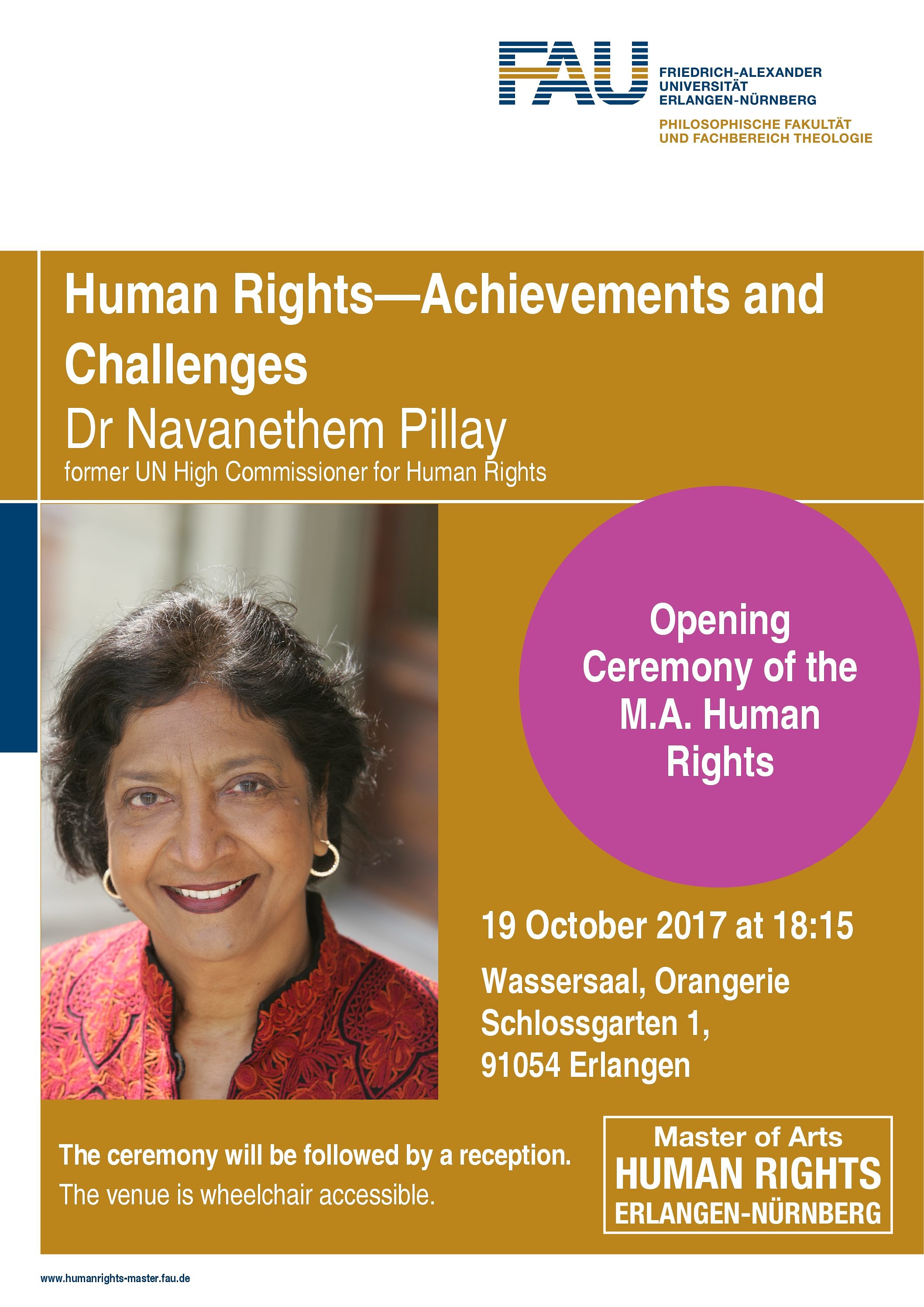Tomorrow, 19 October, at 6.15pm we will officially open the new academic year 2017/18 in the university’s Wassersaal (Schlossplatz 1). After a short ceremony for some of our recent graduates, we are very happy and honoured to welcome Dr Navi Pillay, former UN High Commissioner for Human Rights and currently President of the Advisory Board of the International Nuremberg Principles Academy for a short lecture and discussions.
Dr Pillay, South African jurist and human rights activist, will give a lecture on “Human Rights — Achievements and Challenges”. Dr. Pillay has a wealth of experience in the field, both nationally and internationally, having served as, among others, a defense attorney for anti-apartheid activists, the first non-white female judge in South Africa, and a judge on both the International Criminal Tribunal for Rwanda and the International Criminal Court. She has also worked with a number of non-governmental organizations on issues relating to equality, women’s rights, children, detainees, victims of torture and of domestic violence, and a range of economic, social and cultural rights.
The ceremony includes a reception. The venue is wheelchair accessible.

Tomorrow, 19 October, at 6.15pm we will officially open the new academic year 2017/18 in the university’s Wassersaal (Schlossplatz 1). After a short ceremony for some of our recent graduates, we are very happy and honoured to welcome Dr Navi Pillay, former UN High Commissioner for Human Rights and currently President of the Advisory Board of the International Nuremberg Principles Academy for a short lecture and discussions.
Dr Pillay, South African jurist and human rights activist, will give a lecture on “Human Rights — Achievements and Challenges”. Dr. Pillay has a wealth of experience in the field, both nationally and internationally, having served as, among others, a defense attorney for anti-apartheid activists, the first non-white female judge in South Africa, and a judge on both the International Criminal Tribunal for Rwanda and the International Criminal Court. She has also worked with a number of non-governmental organizations on issues relating to equality, women’s rights, children, detainees, victims of torture and of domestic violence, and a range of economic, social and cultural rights.
The ceremony includes a reception. The venue is wheelchair accessible.